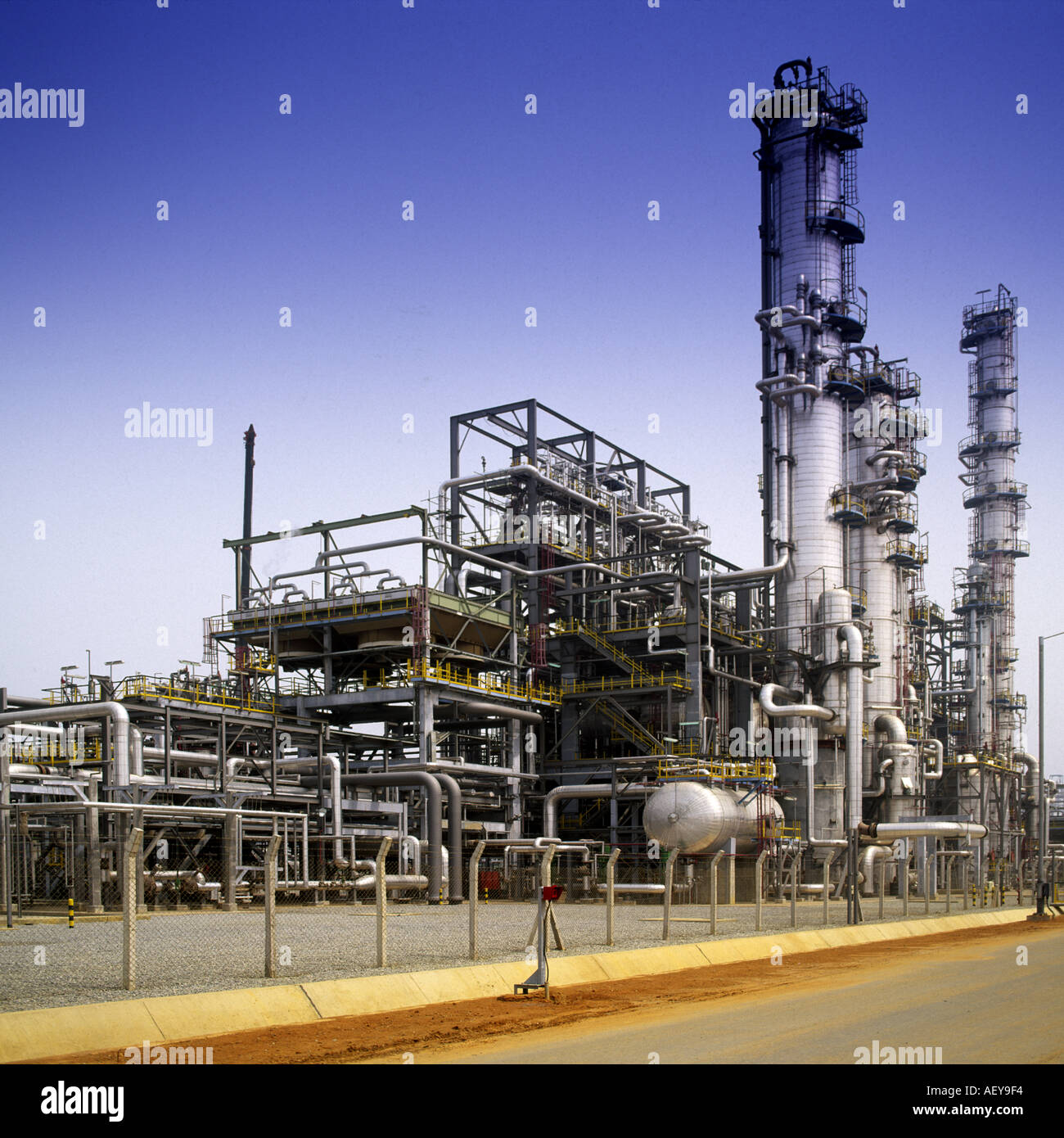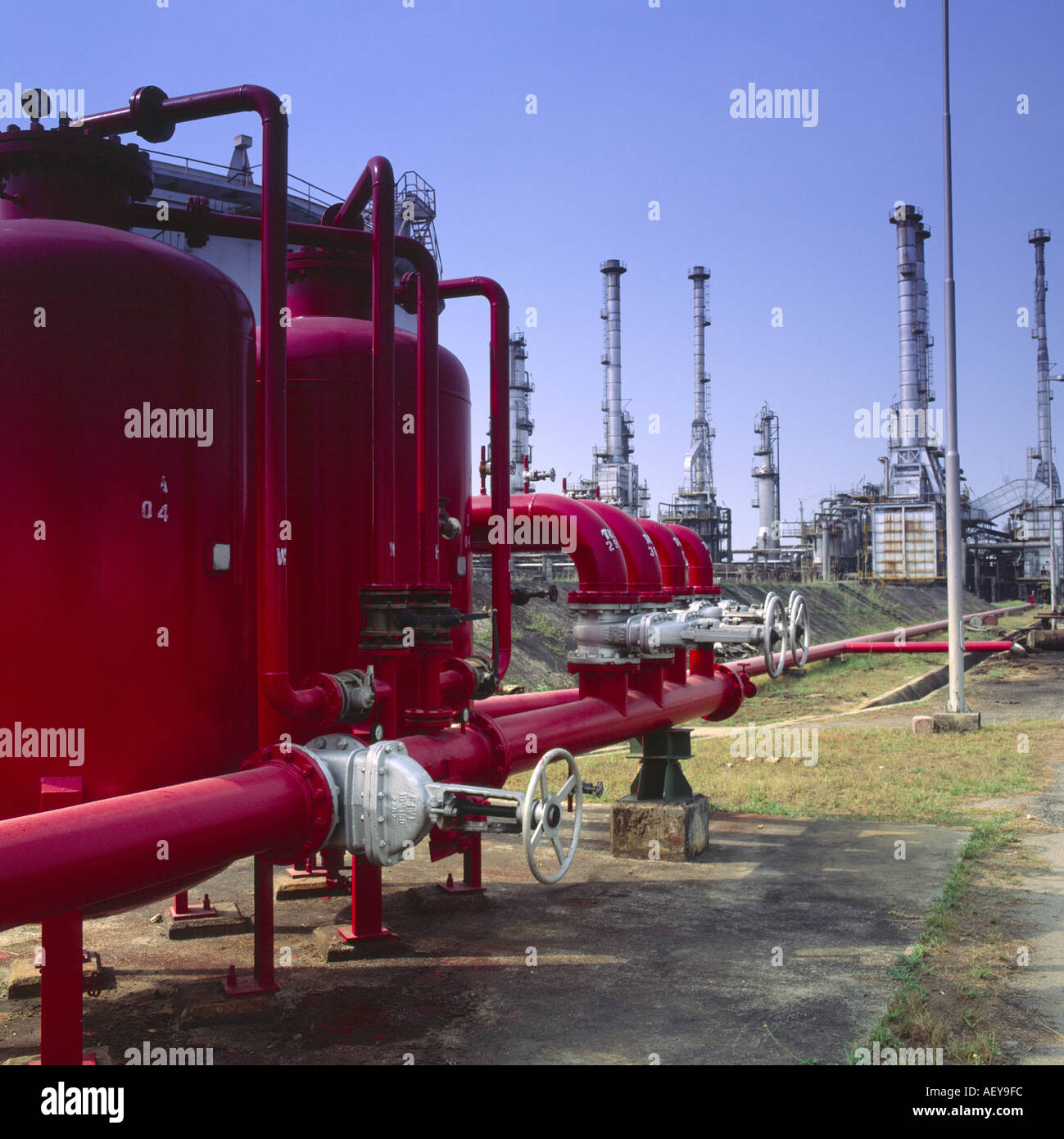When you think about Nigeria, oil is one of the first things that comes to mind. The Nigerian oil industry has long been a cornerstone of its economy, but refining that black gold? That's where the real magic happens, and today, we're diving deep into the world of Nigeria's oil refineries. These refineries are not just about processing crude oil; they're shaping the nation's energy landscape and influencing the global market in ways you might not expect. So, buckle up, because this ride is going to be fascinating.
Oil refining in Nigeria is a topic that’s both complex and critical. It’s not just about economics; it’s about the future of energy, environmental sustainability, and the livelihoods of millions. The country’s oil refineries are a vital part of its infrastructure, and their role cannot be overstated. Understanding the ins and outs of these facilities is key to grasping Nigeria's energy strategy and its place on the global stage.
Now, you might be wondering why Nigeria's oil refineries matter so much. Well, it’s simple: they’re the bridge between crude oil extraction and usable energy products. Without them, the oil would just sit there, unprocessed, waiting for someone else to handle it. But Nigeria aims to change that narrative. With ambitious plans and new projects underway, the nation is positioning itself as a leader in African energy production. So, let’s explore the world of Nigeria oil refinery and uncover what makes it so crucial.
- Jameliz Benitez Smith Onlyfans The Ultimate Guide To Her Journey And Success
- Jameliz Onlyfans Leaks The Truth Behind The Controversy And What You Need To Know
Understanding Nigeria Oil Refinery: The Basics
First things first, what exactly is an oil refinery? Simply put, it’s a facility that processes crude oil into useful products like gasoline, diesel, jet fuel, and even lubricants. But in Nigeria, it’s more than just a factory; it’s a lifeline. The oil refineries in Nigeria have been around for decades, but their journey has been anything but smooth. Challenges ranging from infrastructure issues to political instability have plagued these facilities over the years.
How Do Nigeria's Refineries Work?
The process of refining oil is intricate, involving several stages. It all starts with distillation, where crude oil is heated and separated into different components based on their boiling points. From there, it moves on to cracking, reforming, and blending, where the components are further processed to create the final products. Each step is crucial, and any hiccup in the process can lead to significant disruptions.
Here’s a quick breakdown of the key stages:
- Emma Anturin Age A Deep Dive Into The Life Journey And Influence
- Anyalacey Leak The Untold Story Behind The Viral Sensation
- Distillation: Separating crude oil into various fractions
- Cracking: Breaking down heavy hydrocarbons into lighter ones
- Reforming: Converting low-octane hydrocarbons into high-octane ones
- Blending: Mixing different components to produce final products
Challenges Facing Nigeria Oil Refinery
While the potential of Nigeria’s oil refineries is vast, they face a myriad of challenges. From outdated technology to inadequate infrastructure, these issues have hindered their efficiency and effectiveness. The result? A reliance on imported refined products, which costs the nation billions annually.
Infrastructure Issues
One of the biggest hurdles is the state of infrastructure. Many of Nigeria’s refineries are old and in dire need of upgrades. Without the necessary investments, they struggle to operate at full capacity. This not only affects production but also increases maintenance costs. It’s a vicious cycle that needs to be broken if Nigeria wants to achieve energy independence.
Political and Economic Challenges
Politics and economics also play a significant role in the success or failure of Nigeria’s oil refineries. Corruption, policy inconsistencies, and economic instability have all contributed to the struggles faced by these facilities. Addressing these issues requires a concerted effort from both the government and private sector.
The Role of Nigeria Oil Refinery in the Global Market
Nigeria’s oil refineries are not just important locally; they have a global impact as well. As one of Africa’s largest oil producers, the country plays a crucial role in the global energy market. The efficiency of its refineries directly affects the availability and price of petroleum products worldwide.
Impact on Global Oil Prices
When Nigeria’s refineries are operating at full capacity, it can lead to a decrease in global oil prices. This is because the country can meet its domestic demand and export excess refined products. Conversely, when the refineries are struggling, it can lead to price spikes as Nigeria turns to imports to meet its needs.
Investing in the Future: New Projects and Initiatives
Despite the challenges, Nigeria is making significant strides in improving its oil refining capabilities. Several new projects and initiatives are underway, promising to revolutionize the industry. These efforts are aimed at increasing capacity, improving efficiency, and reducing reliance on imports.
The Dangote Refinery: A Game-Changer
One of the most anticipated projects is the Dangote Refinery. Set to be the largest in Africa, this refinery is expected to process up to 650,000 barrels of crude oil per day. Its completion could transform Nigeria’s energy landscape, making the country a net exporter of refined products.
Government Initiatives
The Nigerian government is also taking steps to support the industry. Policies aimed at attracting investments, improving infrastructure, and combating corruption are being implemented. While the results may not be immediate, these efforts are crucial for the long-term success of Nigeria’s oil refineries.
Environmental Considerations
As the world shifts towards cleaner energy sources, the environmental impact of oil refining cannot be ignored. Nigeria’s refineries must adopt sustainable practices to reduce their carbon footprint and comply with international standards. This includes investing in cleaner technologies and implementing stricter regulations.
Steps Towards Sustainability
Some of the steps being taken include:
- Adopting cleaner refining processes
- Investing in renewable energy sources
- Implementing stricter emission controls
These efforts are not only beneficial for the environment but also for the long-term viability of Nigeria’s oil industry.
Impact on Local Communities
The success of Nigeria’s oil refineries has a direct impact on local communities. Employment opportunities, economic growth, and improved living standards are just some of the benefits. However, there are also challenges, such as environmental degradation and social inequality, that need to be addressed.
Economic Benefits
Refineries provide jobs, both directly and indirectly, and contribute significantly to the local economy. They also attract other industries, creating a ripple effect that benefits the entire community.
Conclusion
In conclusion, Nigeria’s oil refineries are a vital part of the nation’s energy infrastructure. While they face numerous challenges, the potential for growth and development is immense. With new projects like the Dangote Refinery and government initiatives aimed at improving the industry, the future looks promising. However, addressing issues such as infrastructure, politics, and the environment will be key to realizing this potential.
So, what can you do? If you’re interested in the topic, share this article with your friends and family. Engage in discussions about the future of Nigeria’s oil industry. And if you’re an investor or policymaker, consider supporting initiatives that aim to improve the efficiency and sustainability of Nigeria’s refineries. Together, we can ensure a brighter energy future for Nigeria and the world.
Table of Contents
- Understanding Nigeria Oil Refinery: The Basics
- Challenges Facing Nigeria Oil Refinery
- The Role of Nigeria Oil Refinery in the Global Market
- Investing in the Future: New Projects and Initiatives
- Environmental Considerations
- Impact on Local Communities
- Conclusion
That’s it for now, folks. If you have any questions or comments, feel free to drop them below. Let’s keep the conversation going!
- Anna Malygon Nudes Unveiling The Truth Behind The Controversy
- Jameliz Smith Nudes The Untold Story And Why It Matters


